Realizing the promise of the future of mobility requires the vision, commitment, and cooperation from our partners. Together, we are addressing questions and issues that no single entity can resolve alone.
ACADEMIC PARTNERS
Michigan Engineering
U-M’s College of Engineering has been a key partner since Mcity was established. As of January 1, 2022, Mcity became a unit of Michigan Engineering. Many Mcity-funded research projects involve Michigan Engineering faculty and students. Another engineering initiative is TechLab at Mcity, a Company-in-Residence incubator for early-stage advanced mobility technology companies in the connected and automated vehicle industry. TechLab is managed by Michigan Engineering’s Center for Entrepreneurship, with support from Mcity. The program gives undergraduate students an opportunity for hands-on work with TechLab companies to solve real engineering problems.
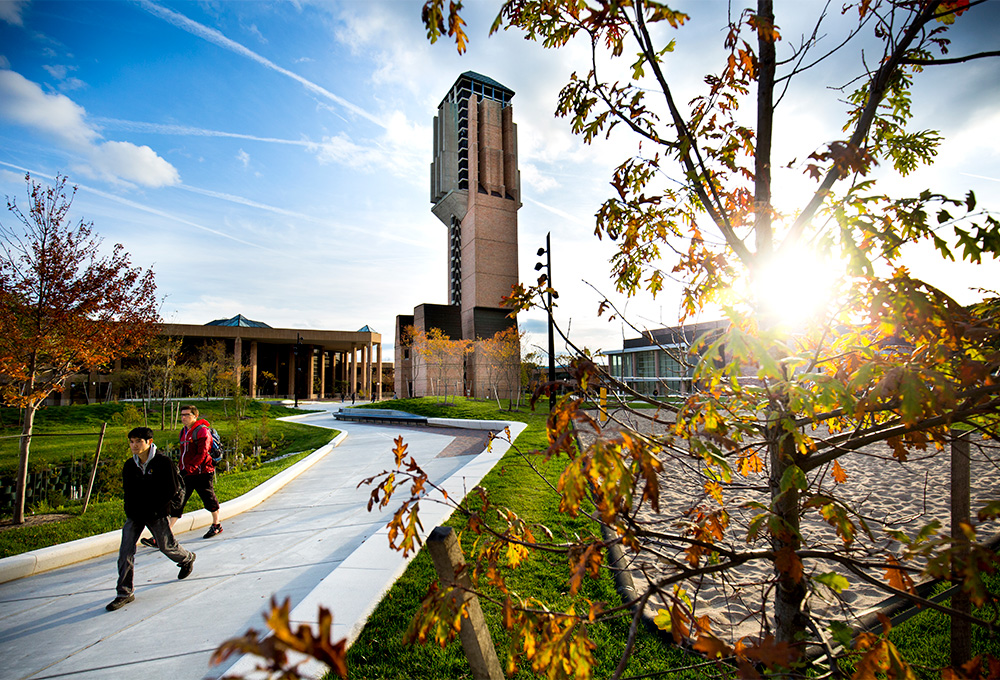
Center for Connected and Automated Transportation (CCAT)
The Center for Connected and Automated Transportation (CCAT) was established with a $2.4M grant from the U.S. Department of Transportation and in 2023 the grant was renewed under the Bipartisan Infrastructure Law. The center plays a unique regional role in promoting transportation research, education, workforce development, and technology transfer activity. CCAT is located within the U-M Transportation Research Institute (UMTRI) and Henry Liu serves as Director for both Mcity and CCAT. The Mcity Test Facility is an important resource for CCAT researchers and Mcity’s relationship with CCAT is an added benefit for Mcity Members, academic researchers, and students. Members have access to the regional research work conducted by CCAT partners, may participate in CCAT working groups, and serve on the CCAT Technology Advisory Board. Mcity academic researchers received notice of CCAT grant opportunities in addition to Mcity grant proposals.
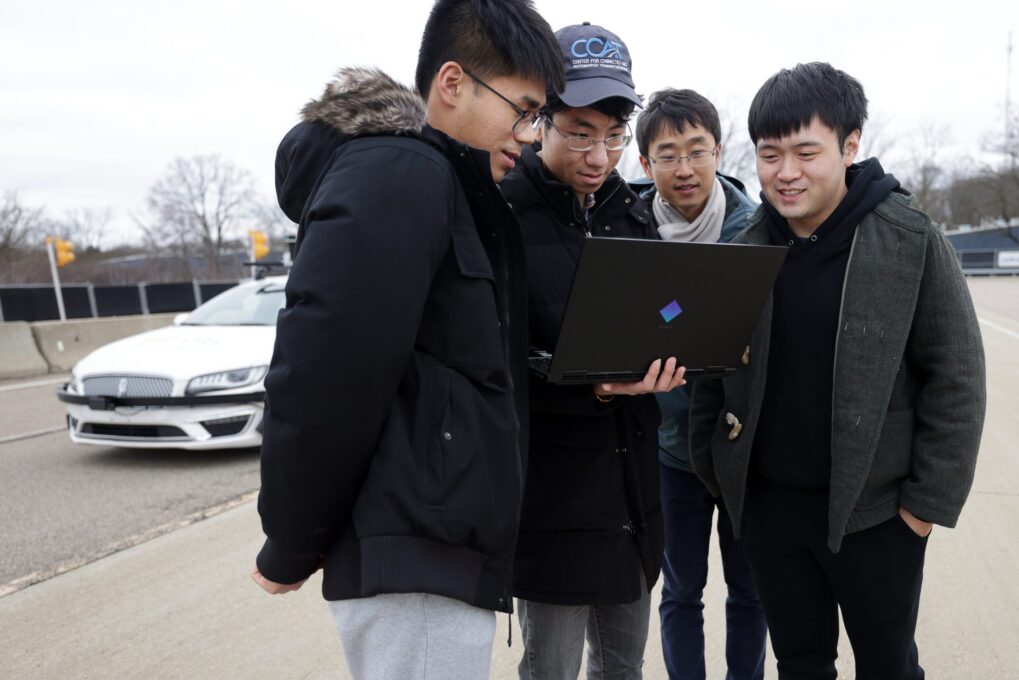
Mobility at Michigan
Mcity is part of a broader effort at the University of Michigan to advance transportation and mobility research and innovation. In addition to Mcity, Mobility at Michigan includes:
- U-M Transportation Research Institute (UMTRI), founded in 1965, is a global leader in transportation research and a partner of choice for industry leaders, foundations, and government agencies. UMTRI has conducted more than 1,000 multidisciplinary research projects in areas involving social and behavioral analyses, accident data collection, traffic safety analysis, and standards development and testing, as well as the deployment and evaluation of new safety and mobility technologies. Mcity is partnering with UMTRI on research and in the deployment of connected and automated vehicle technologies. Through this work UMTRI has collected over 70 terabytes of data; nearly seven million trips; 45 million miles; and 138.5 billion records. In 2020, UMTRI became a unit of Michigan Engineering.
- Electric Vehicle Center (EVC) funded by a $130M investment in 2023 from the state of Michigan’s Department of Labor and Economic Opportunity. EVC is working to help meet the U.S. goal that half of new car sales be electric by 2030.
- Automotive Research Center (ARC) is a University of Michigan-based U.S. Army Center for Excellence providing research for the U.S. Army Ground Vehicle Systems Center (GVSC) in Warren, Michigan.
- Walter E. Lay Automotive Engineering Laboratory (Auto Lab) has been at U-M since 1957. Today the Auto Lab conducts research on batteries for automotive applications and vehicle autonomy.
Michigan Law
Legal and liability issues are among the most challenging that must be addressed as the traditional vehicle ownership and use model evolves and literally takes consumers out of the driver’s seat. Mcity has funded research projects in this area conducted by Michigan Law faculty, and the school offers courses that give students a chance to explore the legal issues surrounding advanced mobility.
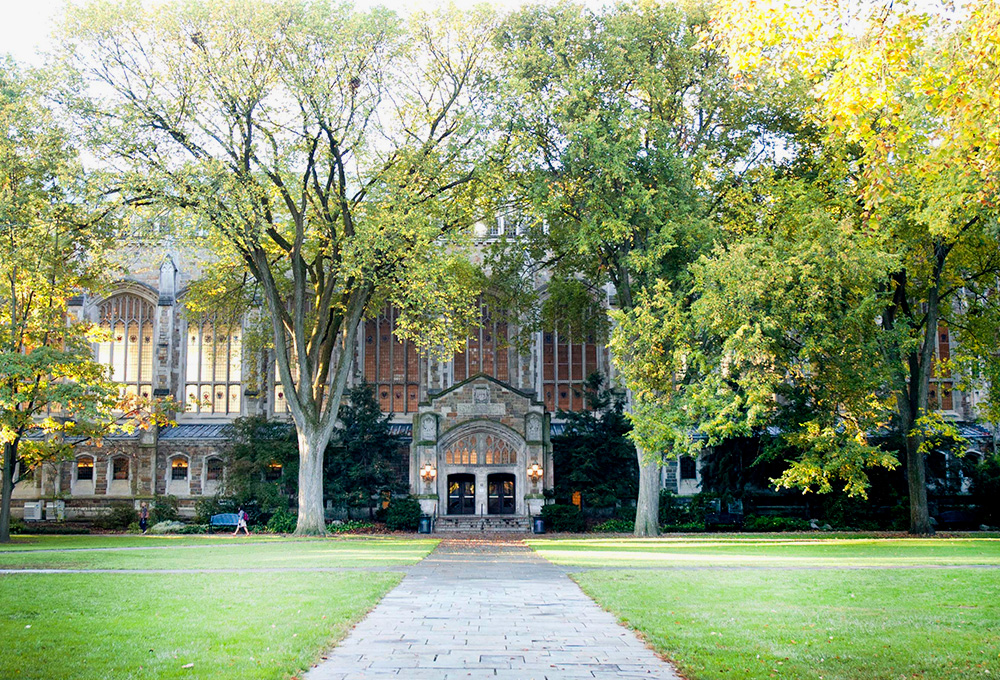
Poverty Solutions
Poverty Solutions is a university-wide presidential initiative that partners with communities and policymakers to find new ways to prevent and alleviate poverty through action-based research.
The mission of Poverty Solutions at the University of Michigan is to cultivate action-based research partnerships with community stakeholders and policymakers to find what works in confronting poverty and use that evidence to be a part of positive change in communities.
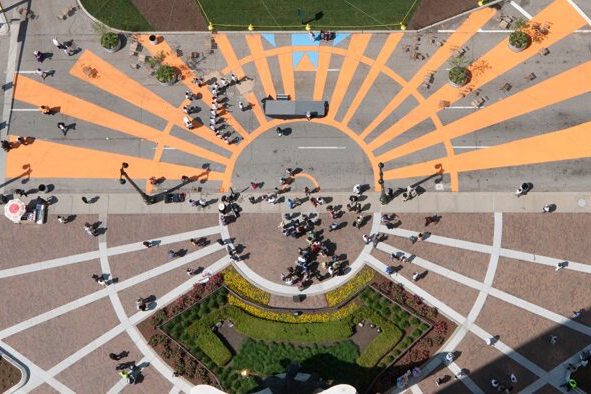
GOVERNMENT PARTNERS
City of Ann Arbor
The support and cooperation of the city of Ann Arbor at many levels has long been essential to the work of Mcity, and to furthering the progress of deploying advanced technologies for safety, mobility, and efficiency.
A2GO, an autonomous vehicle (AV) shuttle service currently on the streets of Ann Arbor was launched in October 2021. Mcity partnered with May Mobility and Ann Arbor SPARK.
In 2012, the streets of Ann Arbor became the world’s largest test bed for evaluating the potential of connected vehicles and infrastructure technology with the implementation of the Connected Vehicle Safety Pilot Model Deployment. This initial project evolved into the Ann Arbor Connected Vehicle Test Environment (AACVTE) and today is known as the Ann Arbor Connected Environment 2.0 (AACE) receiving an additional $9.8M U.S. DOT federal grant in 2023 to deploy cellular vehicle-to-everything (C-V2X) technology, allowing participating vehicles to exchange safety-enhancing data with the world around them.
Mcity’s work within the local civic environment is paving the way for regional and national deployments that are critical to demonstrating the safety and commercial viability of connected and automated vehicles.
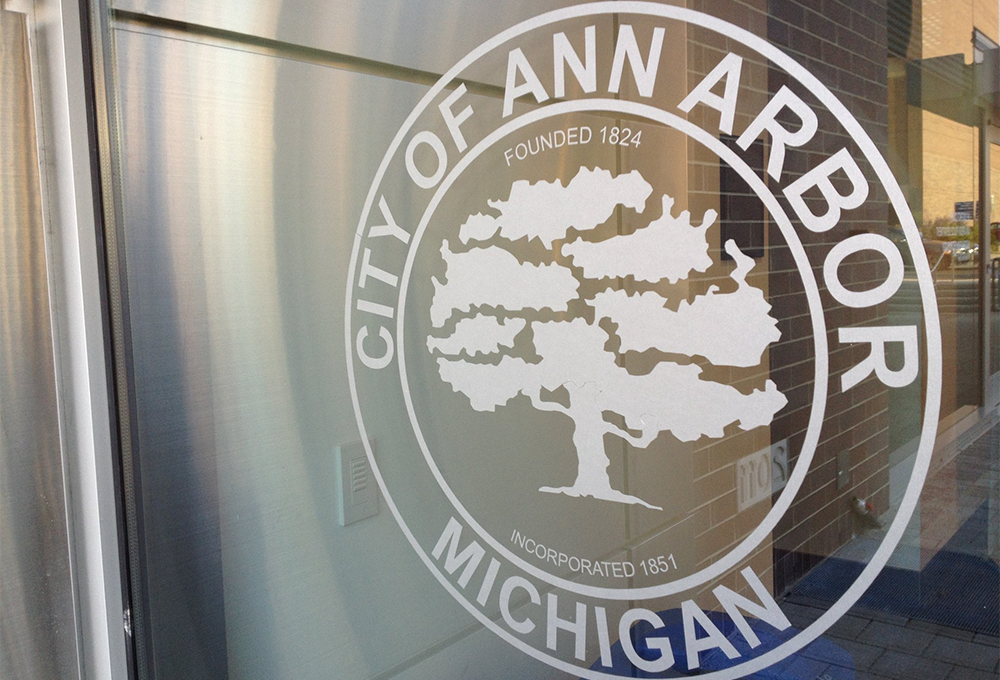
Michigan Economic Development Corp. (MEDC)
Michigan’s innovative leadership is successfully driving collaboration among public, private and philanthropic partners to advance the state’s mobility ecosystem. The Office of Future Mobility and Electrification supports a comprehensive statewide approach to help government, education and the private sector succeed in growing the mobility and electrification industry in Michigan.

Michigan Department of Transportation
Michigan is a leader in deploying intelligent transportation systems (ITS) and U-M has collaborated with the Michigan Department of Transportation (MDOT) in the evaluation of ITS, including the use of probe vehicle data for management of the highway network. MDOT worked closely with U-M on the design of the Mcity Test Facility, a unique simulated urban environment for testing connected and automated vehicle systems, and provided funding to support construction of the facility. In addition, MDOT and U-M work closely on the development and implementation of connected vehicle test beds in Southeast Michigan which provide a platform for research involving vehicle-to-vehicle and vehicle-to-infrastructure communications on highways across the region.
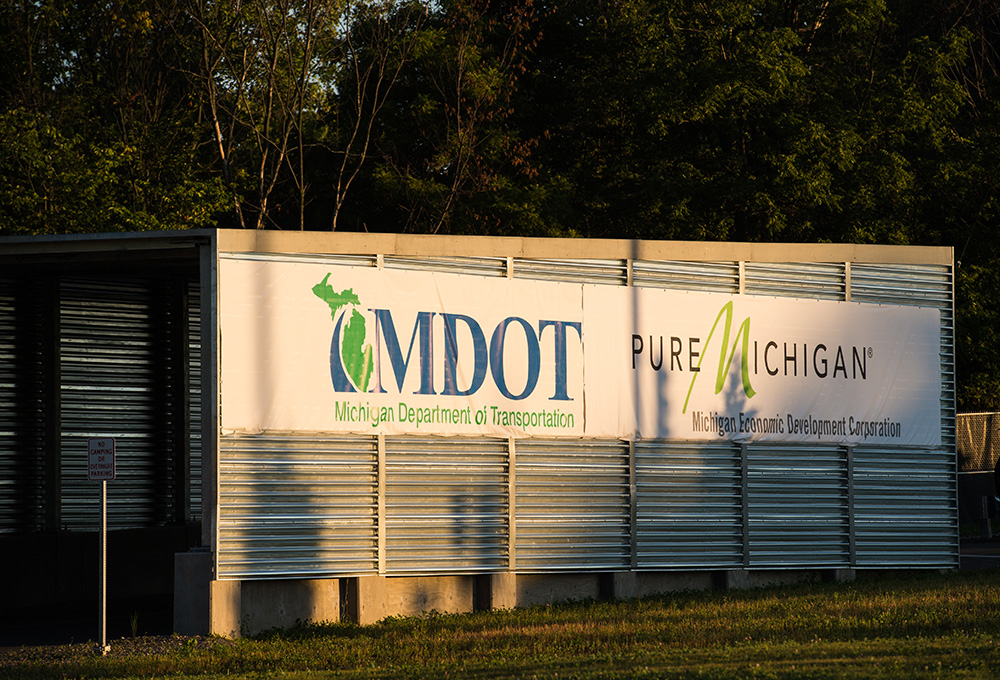
American Center for Mobility
The American Center for Mobility (ACM), located at the 530-acre historic Willow Run site in Ypsilanti Township in Southeast Michigan, is a non-profit testing, education and product development facility for future mobility.
ACM is located less than 20 miles from the Mcity. The two operations complement each other. Mcity is focused on pre-competitive research projects, education, and living lab vehicle deployments, while ACM’s priorities are testing the readiness of new technologies and enabling safe validation and self-certification of connected and automated vehicle technology.
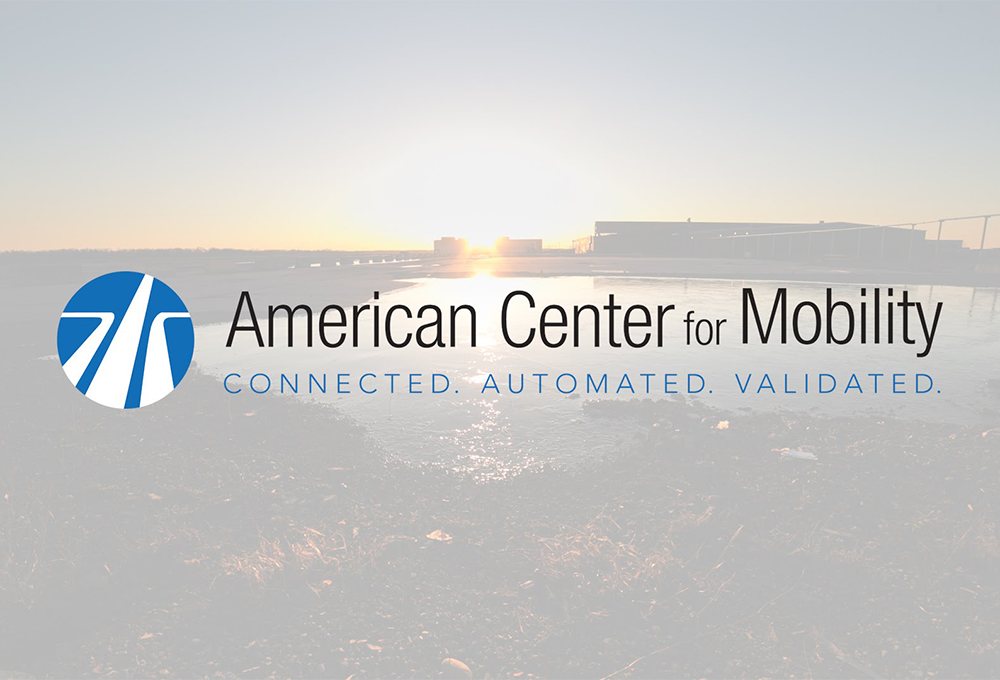
U.S. Department of Transportation
U-M has had a long-standing partnership with the U.S. Department of Transportation, conducting a wide range of federally funded research in motor vehicle safety and efficiency. Most recently, Mcity supported the Ann Arbor Connected Environment (AACE), a $13 million federally funded project conducted and operated by the U-M Transportation Research Institute. The AACE is a real-world implementation of connected vehicle technologies used by thousands of drivers in and around Ann Arbor, Michigan. Connected vehicle technology allows vehicles to communicate wirelessly with each other and with infrastructure such as traffic signals. The information gathered from this study can be used for certain safety applications – such as collision warning systems – sustainability initiatives, and may one day be used to help guide automated vehicles.
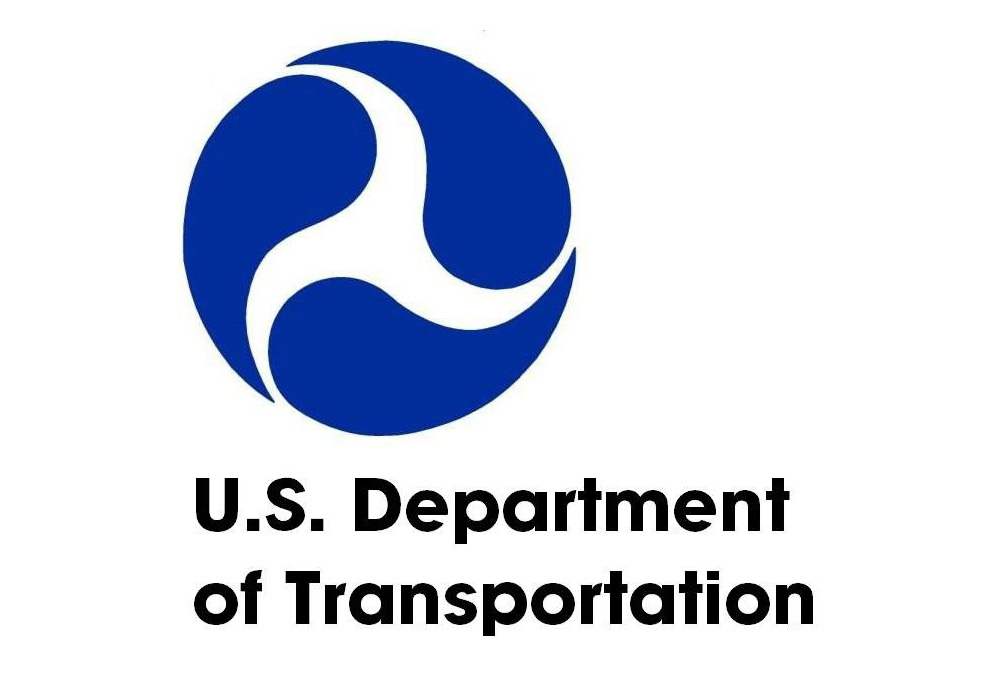
U.S. Department of Energy
The U.S. Department of Energy (U.S. DOE) in 2015 awarded a three-year, $2.7 million grant to Mcity researchers to study the potential energy savings of connected and automated vehicles. This was the first connected and automated vehicle project funded by U.S. DOE. The U-M Transportation Research Institute participated in the research, along with U.S. DOE’s Argonne and Idaho national labs.
